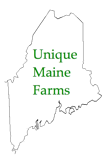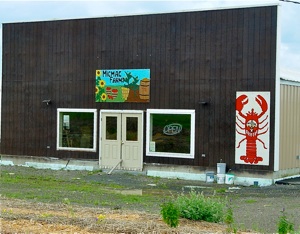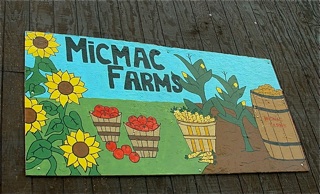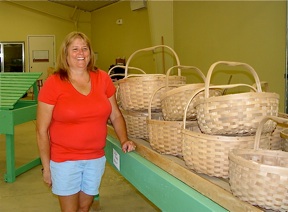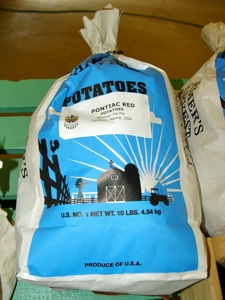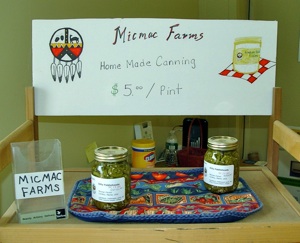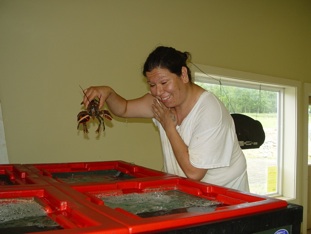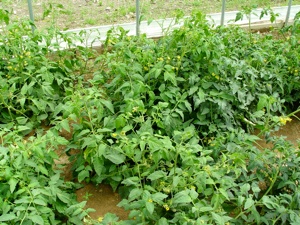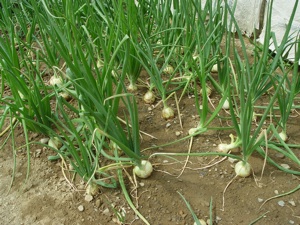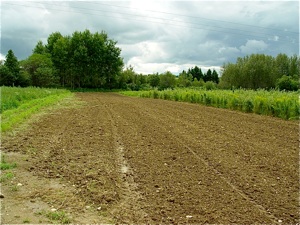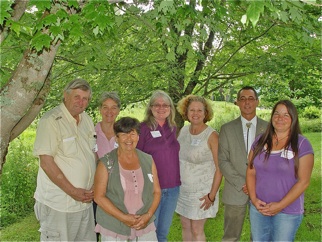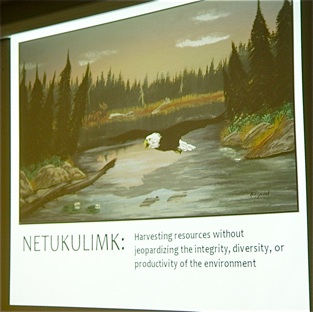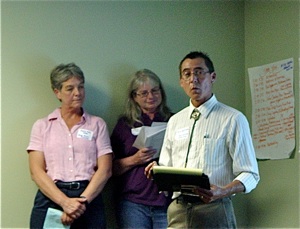Name: Micmac Farms
Contact: Susan Johnston
Farm Manager
Micmac Farms
7 Northern Road
Presque Isle, Maine 04769
Website: www.micmac-nsn.gov
Email: farm@micmac-nsn.gov
Office Phone: 207-764-1972
Farm Phone: 207-493-1269
Store Hours: Monday-Friday: 10 - 6
Saturday: 9-1
Products and Services:
-farm store
-greenhouses
-grafted fruit tree nursery
-permaculture garden
-brook trout hatchery
-strawberries, blueberries, raspberries
-tomatoes, peppers
-corn
-potatoes
-jams and jellies
-pickles
-lobster
What Makes Micmac Farms Unique?
The Micmacs, like other members of the Wabanaki Confederacy, have a long tradition of hunting, farming, fishing and gathering. Land and water and the resources that can be found in the outdoors have always been an integral part of the essence of the Micmac people. The Micmacs have lived by the tenant known as Netukulimk. It is their belief that all elements of the natural world have been provided by the Creator to help support the individual and the community. It is completely understood that these components of the natural world must be respected and conserved.
For the past four years the Aroostook Band of the Micmacs have focused efforts on carrying out the idea of Netukulimk in the establishment of Micmac Farms in the Caribou/Presque Isle area of Aroostook County. The farm was initially created as part of a community health project in 2009. A large community garden was established with the goal of becoming a resource of healthy local produce for the tribal members. Some of the health concerns affecting the Micmacs include conditions such as diabetes and obesity. The fresh quality food provided by the garden was viewed as a way to introduce healthier eating habits and sustainable farming practices.
The community garden project was well-received and farming on the eighteen-acre property expanded with the grafting of one thousand apple tree seedlings. Plum, cherry, and pear trees were also planted. Some of the crops that were eventually cultivated at Micmac Farms in the fifteen acres of fields include potatoes, corn, peas, beans, squash, and pumpkins.
The USDA Rural Development Program aided with the construction of greenhouses and the tree nursery facility. The 1500 square foot heated and lighted greenhouse adjacent to the Micmac Farms store has been utilized to grow tomatoes, peppers, and herbs. There are plans to grow spinach, lettuces, and cold-hardy crops in the greenhouse in the winter.
Permaculture experts, Charles and Julia Yelten, volunteered to oversee the construction of a permaculture garden this past year. On Saturday, June 1, a “Perma-Blitz” was sponsored by Maine Rural Partners. Many individuals volunteered to help with such tasks as building swales, applying mulch with newspaper and cardboard, and planting edible perennials. An herb wheel garden was planted. A berry wheel garden was also established.
Micmac Farms planted a new crop of 1200 strawberry plants, 300 high-bush blueberry plants, and 600 raspberry plants. They have created several value added products from the berries such as jams and jellies. Other preserved products that they market in their farm store include salted onions, pickles, and dilly fiddleheads.
The Micmac Farms’ farm store was chosen by Maine Rural Partners as a Heat Pump Demonstration site. Four heat pump units were installed. According to the Maine Rural Partner’s website, “These air-to-air mini-split heat pumps offer the potential of running at 300% efficiency to transfer heat from the outside to the inside of the building.” Prior to the installation of the units, nearly 1500 gallons of oil were burned in 2011. With the use of the new heat pumps, a 38% reduction in heating costs was calculated for the three-month period of February through April 2012. The heat pumps’ performance will be monitored for the next two years under a USDA Natural Resources Conservation Services Conservation Grant, and a USDA Offices of Advocacy and Outreach grant and local partners.
Saving fuel costs to operate the 6,000 square foot Farm Store building is crucial to Micmac Farms as they are in need of funding to expand their operation. Representatives from the Aroostook Band of the Micmacs and from Maine Rural Partners made a presentation at the Slow Money Maine gathering on July 24, 2013, in Augusta. They shared information about their plans to develop the Farm Store. Included in these plans was a search for funding for a farm manager and two laborers.
Other goals for Micmac Farms that were shared at the Slow Money Maine gathering were the renovation of the front part of the farm building, improved signage, the acquisition of a small tractor, the rehab of the machine shed, acquiring equipment for a commercial kitchen, and the staining and sealing of the cement floor in the farm store.
In 2013, the Micmacs kept busy putting the finishing touches on the 3,000 square foot brook trout fish hatchery that has the capacity to produce 15,000 pounds of brook trout per year. As fishing has always been highly regarded, the Micmacs are developing a marine fisheries program to provide sustenance for the tribe and to increase revenue. They are hoping to acquire two fishing vessels and the gear necessary to fish for lobster, scallops, and other seafood. Live lobster have already been offered for sale at Micmac Farms. Other items that can be found at the Micmac Farm Store include handcrafted wooden ash baskets and other crafts handmade by tribal members.
The concept of Netukulimk, which has been embraced by the Micmacs since their beginnings is obvious in the choices that they are making in building a natural-resource based economy. They are consciously producing and harvesting resources “without jeopardizing the integrity, diversity, or productivity of the environment.”
As one reflects on the history of the Micmac people it is clear that their ties to the land and the water still remain strong. When they settled in New England many years ago they relied on the outdoors to provide them with their shelter (wigwams) and clothing (skins of mammals, birds, and fish) and tools and equipment (from animal parts, shells, stone, wood, clay, roots, bark) and transportation (canoes and snowshoes).
There are now approximately 750 individuals that compose the Aroostook Band of Micmacs in Maine. Just as their ancestors relied on the outdoors for their food, the Micmacs associated with Micmac Farms in Caribou are once again turning to the land and water for their sustenance and their livelihood.
If one studies the Micmac logo that appears on the top of this page they will see elements of nature such as the bear claws, the deer, and the thunderbird. According to the official website of the Aroostook Band of the Micmacs, the logo is a circle because the circle represents the unity of the Micmac people. Circles can also represent a sense of continuity and infinity. Micmac Farms seems to be a symbol of the never-ending bond and deep sense of respect for the land and the natural environment that has always been embraced by the Micmac people. Micmac Farms is what Netukulimk is all about.


